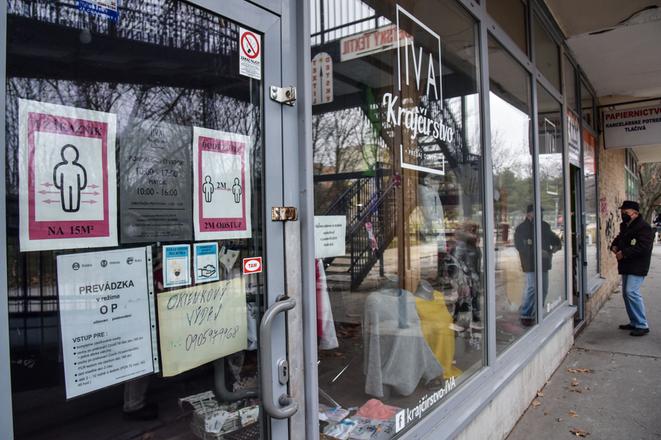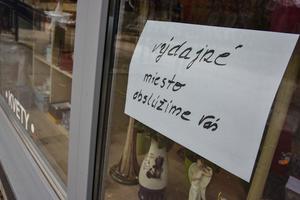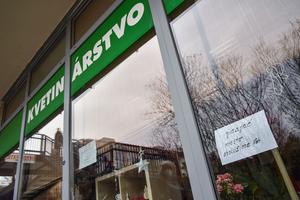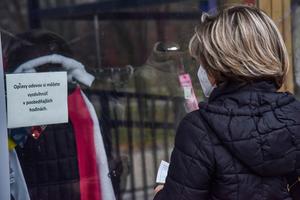A two-week lockdown for everybody and a 90-day national emergency – this is the result of the November 24 cabinet session.
Our paywall policy:
The Slovak Spectator has decided to make all the articles on the special measures, statistics and basic information about the coronavirus available to everyone. If you appreciate our work and would like to support good journalism, please buy our subscription. We believe this is an issue where accurate and fact-based information is important for people to cope.
Schools should remain open, but schoolchildren will have to be regularly tested. Moreover, schoolchildren will be required to wear masks during classes again.
Both the lockdown and the national emergency will come into force on November 25 at midnight and will last until at least December 9.
The declaration of a national emergency enables the cabinet to impose a curfew, which will be in place between 20:00 and 5:005:00 and 1:00the next day.
There will be certain exemptions from lockdowncurfew, namely:
visiting a doctor;
travelling to get vaccinated or a Covid-19 test (between 5:00 and 20:00);
the essential shopping and services (see the list below) - opening hours limited between 5:00 and 20:00;
commuting to and from work (with home office recommended), employees will need confirmation from their employer;
travel to and from school and kindergarten (between 5:00 and 20:00);
care for family members or other relatives;
walking pets within 500m from your home, caring for farm animals;
being in nature within the district you live;
attending funerals, wedding ceremonies and christenings (between 5:00 and 20:00);
travel abroad and to mass events.
“If such a strict lockdown doesn’t work, it would be a world phenomenon,” PM Eduard Heger (OĽaNO) said.
The cabinet will reassess the situation after 10 days and then decide whether they will prolong the measures or lift the restrictions, but only for fully vaccinated people and those who have recovered from Covid within the past 180 days.
Different requirements of experts
“Today’s decision wasn’t political,” said Heger (OĽaNO).
Even though he said that they followed the recommendations of experts, the fact is that experts wanted a three-week lockdown for everybody and to keep only kindergartens and the first four grades of primary schools open. Yet, the latter option was vetoed by the junior coalition party SaS, which wanted all schools to remain open.
The prime minister also asked people to adhere to the new rules, which he deems necessary.
“The vaccinated people did everything right,” Heger said, adding this is a fight for people's lives.
Mandatory testing at work
At the same time, the new rules for entering a workplace, which counts on employees having either confirmation of vaccination, recovery from Covid, or a negative test result, should be applied from next Monday, November 29 until the end of the year.
Those not fully vaccinated against Covid or those who recovered from the disease more than 180 days ago will have to present a negative antigen self-test that cannot be older than seven days. Employers will have to purchase these tests, but the state promises to repay them in January. The price of one antigen self-test should not exceed €5 with VAT, Economy Minister Richard Sulík (SaS) announced.
Sulík was also tasked with preparing and issuing a manual for employers on the mandatory testing of their staff members. At the same time, Finance Minister Igor Matovič (OĽaNO) was ordered to secure money to refund the testing costs.
Essential shops and services exempt from the curfew
grocery stores;
chemists;
pharmacies, stores selling medical aids, opticians;
medical spa facilities where patients are treated based on the recommendation of their doctor;
food stalls and restaurants selling takeaways;
newsagents;
stores selling animal fodder and vet clinics;
stores selling footwear and garden equipment;
dispensing points of online shops, package machines and the like;
shops selling spare parts for vehicles, tow services, emission and technical control of vehicles;
points of sale run by telecom operators and energy providers (electricity, gas, water);
post offices, banks and insurance companies;
laundry and dry cleaning services;
petrol stations;
funeral services;
taxi services;
lawyers, notaries, distrainors;
key services, services for the repairs of electric devices and other machines;
scrap yards;
facilities offering long-term and quarantine accommodation;
open-air marketplaces;
premises necessary for mass events.
Mass events that can be held
work-related mass events: participants have to be fully vaccinated or recovered from Covid within the past 180 days; no more than 10 people;
wedding ceremonies, funerals, christening;
sessions of public authorities;
sessions and other events held by law;
elections;
professional competitions in ice hockey, football, handball, volleyball, basketball.


 Illustrative stock photo (source: TASR)
Illustrative stock photo (source: TASR)


